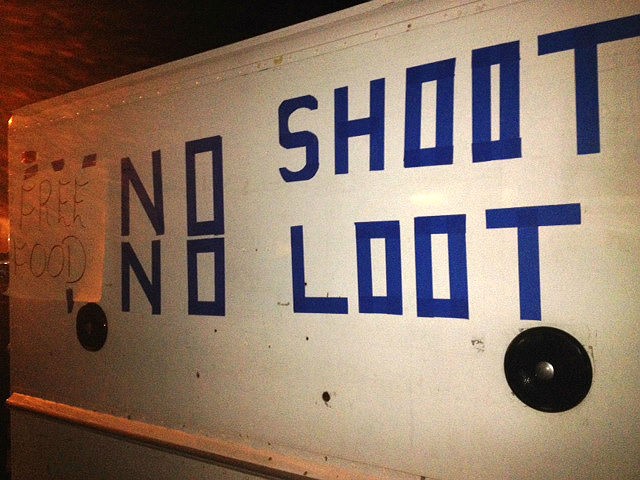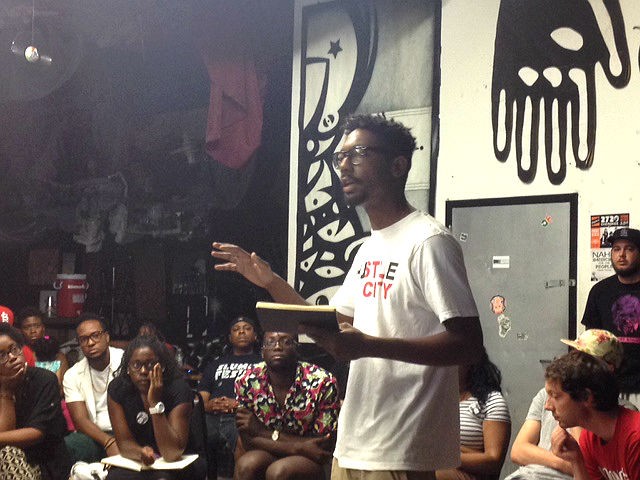 Doug Gillon
Doug Gillon
Sign on food truck on West Florissant
FERGUSON, MO —Ferguson, Missouri is not a war zone. At least it wasn’t Saturday night.
On this night it’s a place of peace, a place of caution, a place of community, and a place of people desperate for change.
A crowd of about 40 circles the sidewalks of west Florissant, a street not too different from Summer, or Lamar, or parts of Poplar Avenue, really. They have signs and a flag and they have their voices.
“Stop! Dont shoot!” They chant. “We are! Mike Brown!”
Street medics marked with homemade red crosses circle the action, closely followed by volunteer legal advisors in green hats.
The advisors and medics have come from nearby St. Marks Church, where protestor training and safe haven is offered for demonstrators.
The police are there too, but it is a tempered presence. It’s less than a Saturday on Beale Street. An MRAP is nearby, hidden behind a car wash at the end of the street. After the chaos of the week, temperate reactions are prevailing. On this night, at least, this is a city trying to heal, and trying to change.
Dozens of meetings are happening around St. Louis, including one on Cherokee Street, which might as well be Madison Ave. Its an artist’s collective of about 200 black and white musicians spending a Saturday afternoon searching for answers.
“I can’t trust white people, and I love y’all!” Exclaims a black guitarist named YaYa. His tone is angry and nervous, but the reaction across the room is accepting, empathetic, comforting. The reaction obviously surprises him, and it seems to cause some of his anger to dissipate instantly.
It was one example of one thing said in a safe, open room, one of several across the city, but indicative of a shift in dialogue; a shift around the barriers to conversation.
The 24 hours between Saturday and Sunday morning were relatively calm in St. Louis, but still full of suspicion, anger and passion.
But they were also full of hope, of a prevailing desire for healing and change and, most importantly, of open discussion.
The meeting on Cherokee closed with that kind of hopeful message from its leader Damon Davis. “When we can talk, when we can listen, we can change and we can heal.”
To be continued.
 Doug Gillon
Doug Gillon
Damon Davis at Artists’ Meeting